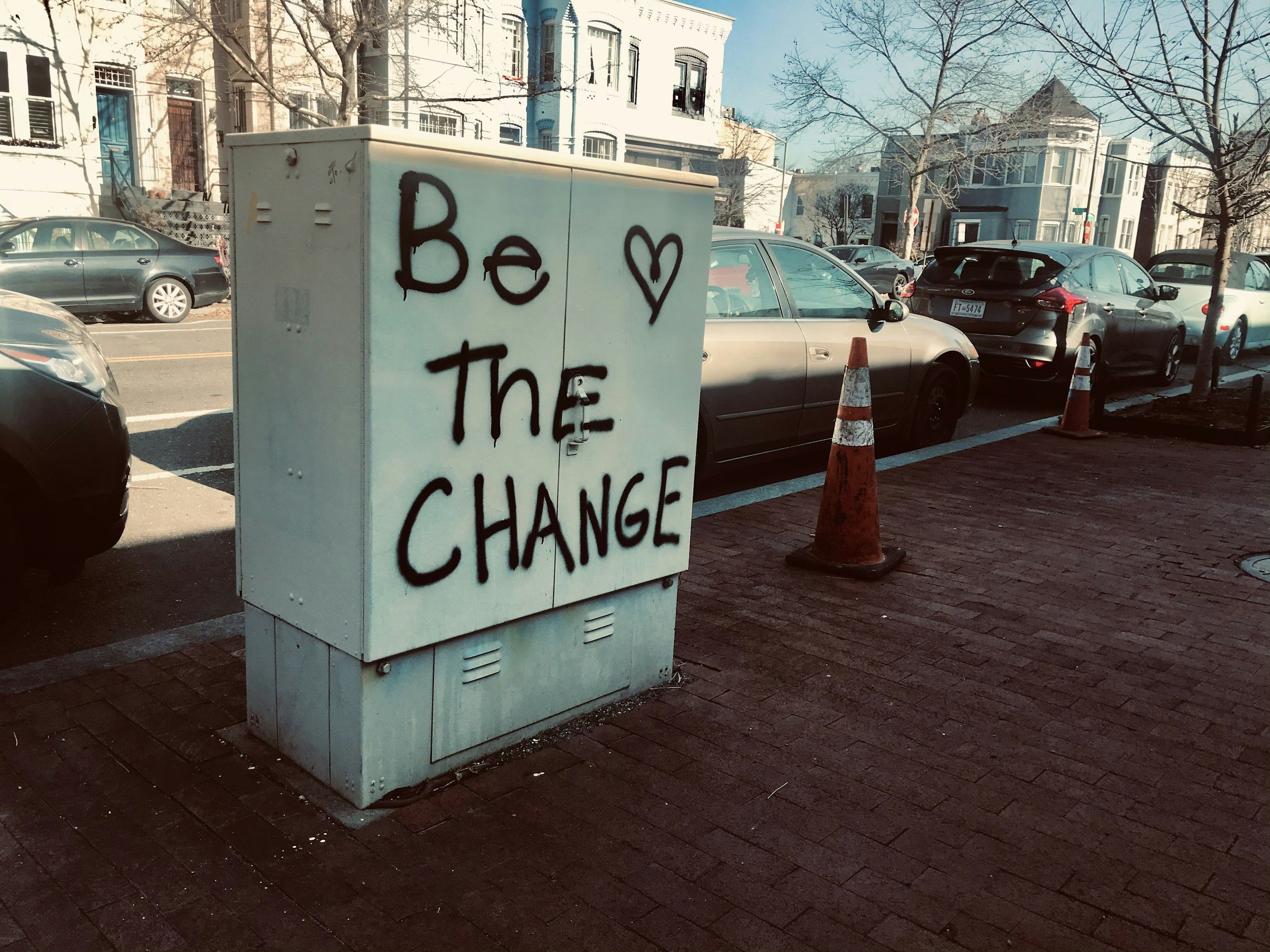2021: The Year Fast Fashion Dies For Good?
We’re less than 6 weeks into 2021, and already the UK fashion industry has been through a lot; there have been Brexit importation fears; the collapse of Arcadia; the buying of Arcadia brands, and then finally the recent new rules to the ‘buy now pay later’ schemes… So where is the UK actually at right now, and what does that mean for fast fashion?
What is Fast Fashion?
The term ‘fast fashion’, in case you weren’t aware, refers to “cheap, trendy clothing that samples ideas from the catwalk or celebrity culture and turns them into garments in high street stores at breakneck speed to meet consumer demand”, according to Good On You.
The term has started to feel like a modern-day buzzword, however, it was actually first coined back in 1989 in the New York Times. The article in which it was mentioned described the speed in which fashion changes, and doesn’t sound too different from the present day, with Juan Lopez, Zara's head of US operations at the time stating-
“Every week there's a new shipment from Spain… The latest trend is what we're after.”
The only difference to now is that back then it took, ‘15 days between a new idea and getting it into the stores,’ with it becoming worryingly less nowadays, with brands producing new lines of clothing every single week, with its 52 "micro-seasons", and daily stock deliveries.
The article predicts the future of fashion in an almost eerie manner, with Lopez stating, “The customer is very much exposed to a media bombardment,” mirroring the present day of influencers promoting their latest PrettyLittleThing outfits; or Youtubers showing off their Shein hauls, for us laypeople to admire in awe, and with the click, swipe, and flash to the ol’ face ID, the items will appear at our doors the next day.
The Fast Fashion Problem
The speed at which the perfect dress you have been scouring the internet for can arrive on your doorstep is astonishing. And what’s even better is when the strap breaks after 10 minutes, it’s easily chucked away with no problem because it was only a tenner.
It’s the cost on the Earth that is more the worry though, with 10,000 items of clothing being sent to landfill every five minutes in the UK. This is due to the fact that during this era of fast fashion, clothes are no longer manufactured to stand the test of time: as HuffPost states, “[fast fashion] clothing is designed to fall apart”.
And it’s not just landfill issues, with the fashion industry being responsible for 10% of the world’s carbon emissions, making one of the top 10 highest polluting industries in the world, some estimates have said it’s as high as second on the list.
And if you think fast fashion couldn’t get any worse, it really can. From child labour; to unsafe working conditions, and the exploitation of workers, both overseas and locally. The era of fast fashion needs to come to an end.
What is Slow Fashion?
Over the years, we have become more aware of the aforementioned issues of fast fashion through various protests; documentaries; books; and many many articles. So by this point, most of us have at least some sort of knowledge of the issues within the fashion industry. This has resulted in many shoppers adhering to ‘slow fashion’ practices. This can include buying second hand; fixing broken clothes rather than chucking them away; and generally just thinking before buying.
The rise in numbers of second-hand stores is only likely to increase further, Financial Times stating that the ‘pre-loved’ industry is, “expected to be worth $50bn by 2023”. This includes chains such as Beyond Retro, who have expanded from a ‘single warehouse-turned-retail store’ in 2002 to 9 stores across the UK today, showing perhaps that fashion really is slowing down.
In addition to this, websites like eBay, Depop and ASOS marketplace have become great spots to find vintage treasures, with Depop seeing “triple-digit year-on-year growth”. Not only is there joy in finding unique and cheap pieces on these sites but vintage pieces tend to last longer. Plus it’s saving the world a little bit. What’s not to love?!
The Collapse of the High Street
With fewer people out and about, because of the *never-ending pandemic* (and the national lockdowns that accompany it), the fall of the high street is very much underway. From staff being made redundant across Urban Outfitters stores last year, to the collapse of Arcadia, it is clear that shopping habits are very different to ye olde 2019.
Although the death of the high street can’t all be down to the pandemic with retail employment declining across all regions over the three years leading up to 2018, suggesting it’s been a long time coming. So why have we stopped supporting our favourite brands, such as Topshop? Could it possibly be that shoppers are becoming more conscious of their purchasing habits? Is fashion slowing down?
Sophie Hersan, Vestiaire’s co-founder and fashion director seems to think so, stating in Financial Times, “more than ever, people are questioning their habits and looking for eco-conscious alternatives in fashion consumption, fuelling supply and demand for second-hand items… The pandemic has accelerated the transition.” This offers some hope for my eco-anxiety.
The Death of Fast-Fashion?
If you’ve looked at any kind of social media or news website over the past week, you would have heard that global fast-fashion brand, ASOS, has now bought Topshop, Topman and Miss Selfridge, suggesting that maybe the online fast fashion giants actually aren’t going anywhere right now.
In fact, according to Financial Times, ASOS’s revenue increased 19.39% from £2.73bn to £3.26bn between 2019 and 2020, suggesting that they’re doing pretty well for themselves. I mean, if I had just bought a 57-year-old multinational brand, I don’t think I’d exactly be shoving my hand down the side of the sofa looking for change.
And just to add fuel to the fire, ASOS rival: Boohoo is in discussions to buy the remaining Arcadia brands: Burton, Dorothy Perkins and Wallis, after already acquiring Oasis, Warehouse and the 34% of Pretty Little Thing it didn’t already own last May, AND of course Debenhams less than two weeks ago. Again, hardly short of pocket, are they?
The Future of Fashion
It seems that shoppers have just gone online to fulfil their shopping needs during a pandemic (who’d have thought?!), suggesting perhaps 2021 isn’t the year that fast fashion dies. But looking on to the future, we can hope that people can continue to make informed decisions about the clothes they buy.
It’s important to look at the feats, however small or individual; whether that be boycotting Boohoo; reading Fashion Revolution’s yearly Transparency Index and learning about how to shop more sustainably, or just cutting down on shopping addiction.
I have faith in the future, with the younger generations caring more about the environment than ever before. Maybe 2022 will be the year we see goodbye to fast fashion? I guess only time will tell.
Help us keep the City Girl Network running by supporting us via Patreon for the price of a cheap cup of coffee - just £2 a month. For £3 a month you can also get yourself a Patreon exclusive 10% off any of our ticketed events! You can also support us by following us on Instagram, and by joining our City Girl Network (city-wide!) Facebook group.
Words by Amber Middleton











